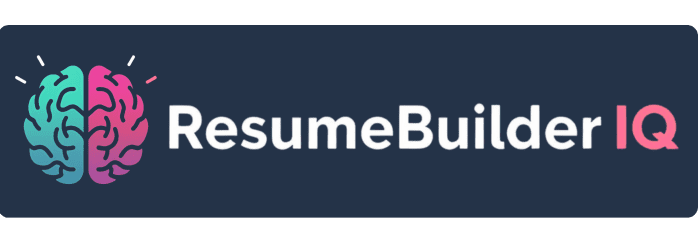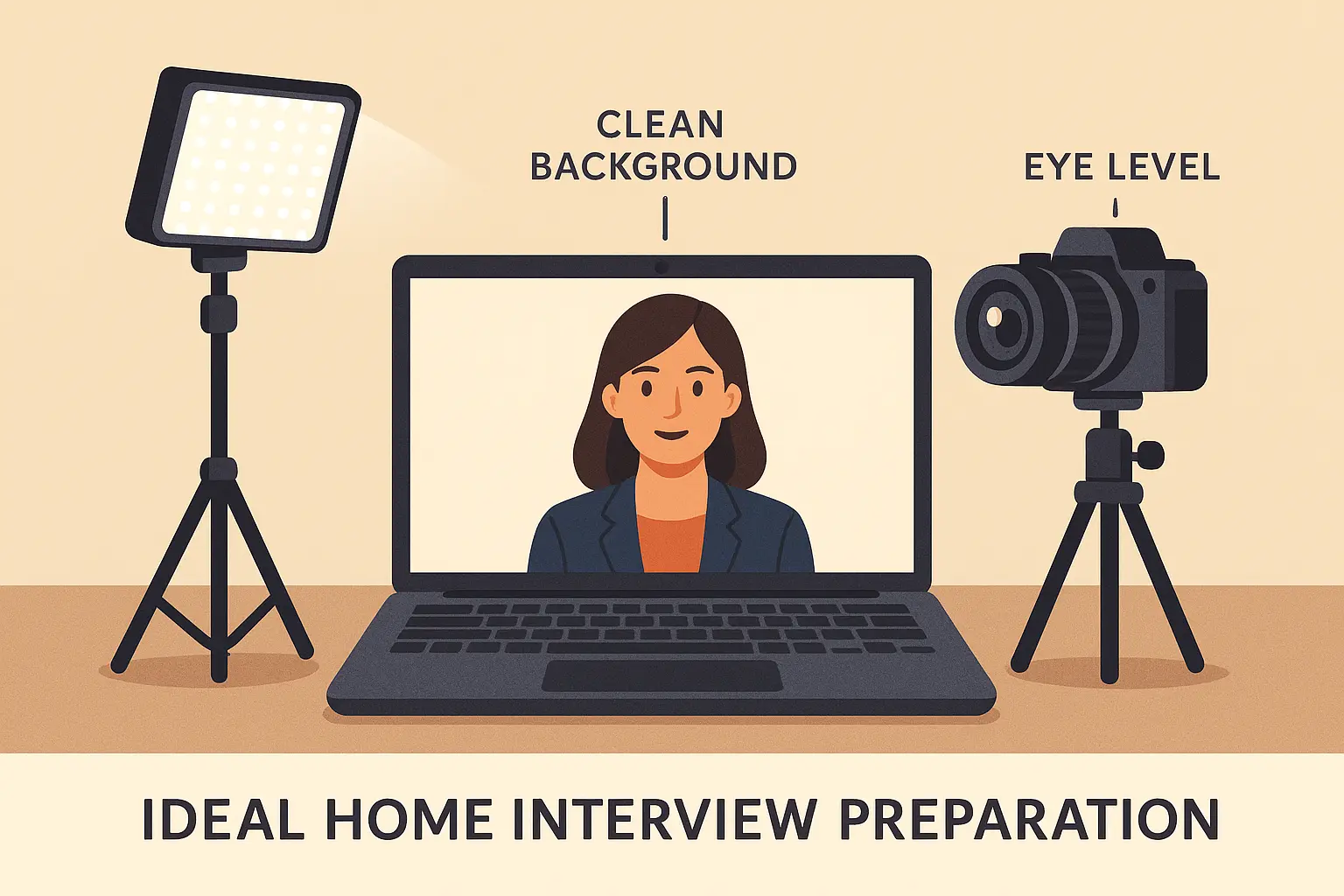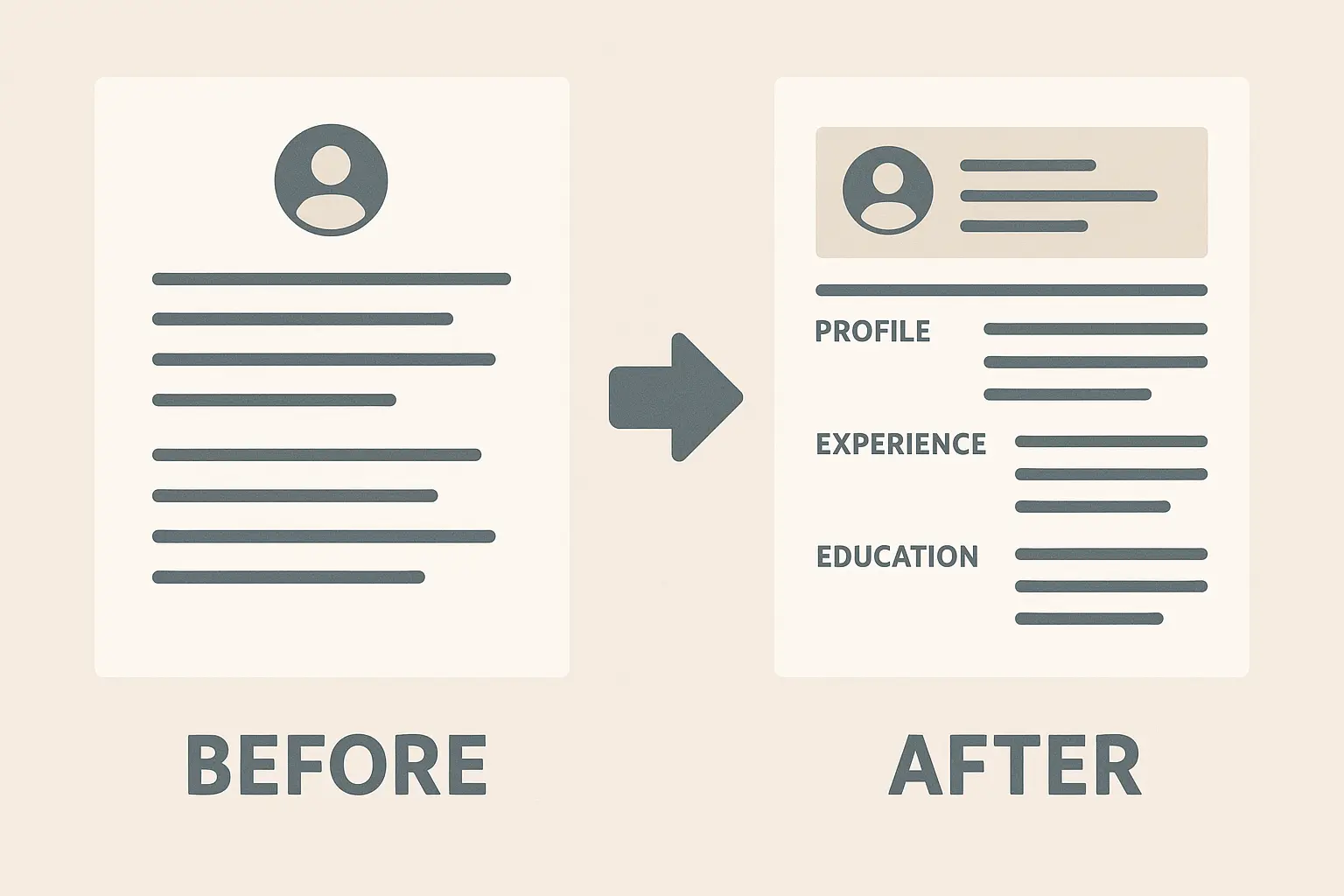How to Get an Internship: The Real Talk Guide Nobody Tells You About Landing Your First Professional Gig

Look, I get it. You’re staring at your laptop screen, wondering how the hell you’re supposed to land an internship when your biggest accomplishment is surviving organic chemistry. According to the National Association of Colleges and Employers (NACE), at least 60% of students from the classes of 2013 to 2017 had an internship, but that doesn’t make the process any less terrifying when you feel completely unprepared for the professional world.
You’re not alone – most students feel totally lost when they start this process.
Table of Contents
-
Getting Real About What You Actually Have
-
Finding Opportunities That Don’t Suck
-
Not Screwing Up the Interview
-
Making Your Internship Actually Matter
-
Navigating Different Program Types
-
Handling Rejections Like a Pro
TL;DR
Your academic work and part-time jobs contain way more transferable skills than you think – you just need to stop underselling yourself. Cold outreach isn’t as scary as it seems, and it often works better than throwing your resume into the online application void.
Interview success comes from preparation and being yourself, not trying to be some corporate robot. Different internship programs have totally different expectations and timelines – do your homework before applying. Rejection is normal and usually has nothing to do with you personally – keep pushing through. Your internship experience depends on how proactive you are from day one.
Getting Real About What You Actually Have
Here’s the thing nobody tells you: you already have more valuable experience than you realize. The problem isn’t that you lack qualifications – it’s that you haven’t learned to talk about your experiences in professional terms yet.
I’ve seen students completely transform their prospects by reframing what they already do. That group project where someone bailed and you had to rally everyone? That’s leadership. Your retail job where you dealt with angry customers? That’s conflict resolution and customer service.
Stop thinking “I have no experience” and start thinking “I have different but relevant experience.”
Creating a Resume That Doesn’t Scream “Student”
Your resume needs to compete with more experienced candidates, but you’re not trying to hide that you’re a student. You’re trying to present your student experiences in ways that show you understand how the professional world works.
When crafting your resume for internship applications, understanding the fundamentals of professional resume format becomes crucial for making a strong first impression with potential employers. I’ve reviewed hundreds of student resumes, and the ones that get noticed transform ordinary experiences into compelling professional stories.
The difference between a student resume and a professional one isn’t the experiences themselves – it’s how you frame them.
Making Your Academic Work Sound Professional
Transform your coursework and projects into evidence that you can solve real problems. Your GPA matters, but your projects matter more if you present them right.
That marketing research project where you analyzed consumer behavior? Don’t write “Completed group project for Marketing 301.” Write “Conducted comprehensive market analysis of consumer purchasing patterns, presenting findings to stakeholder panel of 15+ participants.”
See the difference? One sounds like homework. The other sounds like actual market research.
Focus on projects where you created something tangible or solved a real problem. Your group presentation becomes “Collaborated with cross-functional team to deliver strategic recommendations, resulting in 95% positive feedback from evaluation panel.”
Don’t just list your coursework – explain what you actually accomplished. “Relevant Coursework: Statistics” tells me nothing. “Applied statistical analysis techniques to interpret complex datasets and present actionable insights through data visualization” shows me you can actually do something with those statistics.
Before: “Completed group project for Marketing 301”
After: “Led 4-person team in developing comprehensive digital marketing strategy for local nonprofit, resulting in 40% increase in social media engagement and $2,500 in additional donations over 3-month campaign period”
Every project you include should demonstrate impact, not just participation.
Turning Part-Time Jobs Into Professional Experience
Your part-time jobs taught you way more than you think. You just need to extract the professional skills and present them properly.
That retail job? You handled difficult customers (conflict resolution), managed inventory (supply chain basics), worked during busy periods (performance under pressure), and probably trained new employees (leadership and mentoring).
I’ve seen students dismiss their restaurant experience, but managing multiple tables during a dinner rush requires incredible multitasking, prioritization, and customer service skills. Frame it professionally: “Managed concurrent customer relationships in fast-paced environment, consistently achieving 95% customer satisfaction ratings while exceeding sales targets.”
Even babysitting demonstrates responsibility, problem-solving, and crisis management. “Provided childcare services for multiple families, demonstrating reliability and adaptability while managing emergency situations and maintaining detailed communication with parents.”
Stop selling yourself short. These experiences are legitimate professional development.
Creating an ATS-Friendly Format That Humans Actually Want to Read
Your resume needs to pass through applicant tracking systems (ATS) without looking like a robot wrote it. The best resumes balance ATS optimization with genuine readability.
For internship seekers, mastering ATS-friendly resume secrets ensures your application successfully navigates automated screening systems before reaching human recruiters. I’ve seen perfectly qualified candidates get filtered out because their resumes couldn’t be read by the software.
Use standard section headers like “Education,” “Experience,” “Skills,” and “Projects.” Avoid fancy graphics, tables, or unusual fonts that confuse the software.
Here’s what most people get wrong: keyword stuffing. Don’t just throw random industry terms into your resume hoping something sticks. Research the specific job posting and naturally incorporate relevant terms into your actual experience descriptions.
Save your resume as both a PDF and Word document. Some systems prefer one format over the other, and you want to be prepared for either scenario.
Using What Your School Actually Offers
Your tuition already pays for career services, professor relationships, and alumni networks. You might as well use them effectively instead of trying to figure everything out on your own.
Most students completely ignore these resources, then wonder why their search feels so difficult.
Transforming Class Projects Into Portfolio Pieces
Present your significant coursework using action verbs and quantifiable results to mirror professional accomplishments. Your academic work often involves the same skills used in professional settings – market research, data analysis, project management, and presentation skills.
Stop thinking of your class projects as “just homework.” That semester-long marketing campaign you developed? You conducted market research, analyzed target demographics, created promotional materials, and presented to stakeholders (your professor and classmates).
Your senior thesis involved project management, research methodology, data analysis, and written communication – all highly valued professional skills. Frame it as “Led independent research project analyzing [specific topic], managing timeline and deliverables over 8-month period, resulting in [specific outcome or recognition].”
Group projects demonstrate collaboration, conflict resolution, and shared accountability. Don’t just mention you worked in a group – explain your specific role and contributions. “Served as project coordinator for 5-person team, facilitating weekly meetings and ensuring deliverable quality, resulting in top 10% performance rating.”
Demonstrating Leadership Without a Corner Office
Leadership isn’t just about being president of something. You showed leadership when you organized study groups, coordinated volunteer events, or took charge when group projects were falling apart.
That time you organized a fundraiser for your club? You managed budgets, coordinated with vendors, recruited volunteers, and executed an event. Those are legitimate project management and leadership skills.
Even informal leadership counts. If you consistently helped classmates understand difficult concepts, you demonstrated mentoring abilities. If you took charge during group projects when others were struggling, you showed initiative and problem-solving skills.
Building Professional Networks from Scratch
I know networking sounds terrifying when you’re just starting out. The good news? Most professionals remember being students and are genuinely willing to help if you approach them respectfully.
The best internship opportunities often come through connections rather than online applications. When someone can put in a good word for you, your application actually gets noticed.
Building your network doesn’t require attending fancy events or having impressive credentials. It requires genuine curiosity about other people’s work and a willingness to learn from their experiences.
Maximizing Your School’s Hidden Resources
Your career services office isn’t just for resume reviews (though those are valuable too). They often have direct relationships with employers, exclusive job postings, and insider knowledge about company hiring practices.
Career counselors know which companies consistently hire from your school and can provide specific advice about application strategies. They’ve seen what works and what doesn’t for students with your background. Major institutions such as Regent University emphasize the importance of leveraging university career services, which has trained over 35,000 Christian leaders since 1977, highlighting how established educational institutions continue to prioritize internship placement as a key component of career preparation.
Professors in your field often have industry connections and can provide introductions or recommendations. But you need to build genuine relationships first – show up to office hours, engage thoughtfully in class, and demonstrate real interest in the subject matter.
Alumni networks are goldmines if you approach them correctly. Don’t immediately ask for jobs – ask for advice, insights about their career path, or information about their industry. Most people enjoy sharing their experiences and helping students who show genuine interest.
Finding Opportunities That Don’t Suck
Here’s the brutal truth: most students send out applications like they’re playing the lottery. Spray and pray doesn’t work. The people who land great internships aren’t necessarily smarter than you – they’re just more strategic.
I’ve watched students send 200 generic applications and get nowhere, while others land multiple offers by applying to 20 carefully chosen positions. The difference? They actually did their homework.
Your internship applications compete against hundreds of others, but most of those applications are generic and poorly researched. When you take the time to understand the company, customize your materials, and demonstrate genuine interest, you immediately stand out from the crowd.
Finding the Hidden Gems
Everyone’s fighting over the same Indeed postings. Smart students look where others don’t bother checking. The best opportunities often aren’t posted on major job boards, requiring creative search strategies to uncover positions with less competition.
Most students limit themselves to the obvious sources – Indeed, LinkedIn, and their school’s job board. While these platforms are useful, they’re also where everyone else is looking. The competition is fierce because the opportunities are visible to thousands of applicants.
Using Multiple Search Channels Like a Pro
Company websites often post internship opportunities weeks before they appear on job boards. Set up Google alerts for “internship + [company name]” and check their careers pages weekly, not just when you remember to look.
Professional associations in your field maintain job boards that many students never discover. If you’re interested in marketing, check the American Marketing Association. Engineering students should explore IEEE job boards. These positions typically receive fewer applications because fewer people know about them.
|
Search Channel |
Competition Level |
Best For |
Time Investment |
|---|---|---|---|
|
Indeed/LinkedIn |
Very High |
Getting familiar with requirements |
Low |
|
Company websites |
Medium |
Targeted applications |
Medium |
|
Professional associations |
Low |
Niche opportunities |
Medium |
|
Networking contacts |
Very Low |
Hidden opportunities |
High |
|
Industry publications |
Low |
Emerging companies |
Low |
Industry publications and newsletters frequently mention companies that are expanding or launching new initiatives – perfect timing for internship opportunities. Subscribe to relevant trade publications and pay attention to company news.
Evaluating Companies Beyond Their Marketing Materials
Not all internships are created equal – some offer genuine learning opportunities while others treat interns as unpaid labor. Research company values, recent projects, and employee testimonials to ensure the internship will actually be worth your time.
Glassdoor reviews from former interns tell you what the experience is really about. Look for patterns in feedback – do interns consistently mention meaningful projects and mentorship, or do they complain about busy work and lack of guidance?
Check the company’s LinkedIn page to see what current and former interns post about their experiences. Are they sharing exciting projects and learning opportunities, or radio silence?
Research recent company news and press releases to understand their current priorities and challenges. This information becomes valuable during interviews and helps you identify how you might contribute.
Look at the backgrounds of current employees in roles you’re interested in. Did they start as interns at the company? What career paths did they follow? This gives you insight into potential growth opportunities.
Timing Your Applications for Maximum Impact
Most students apply for summer internships in March and April – way too late. Companies start their internship recruiting in fall for the following summer. By spring, many positions are already filled.
Tech companies often start recruiting in September for summer positions. Finance and consulting firms begin even earlier. Government agencies and nonprofits typically have later deadlines but still prefer early applications.
Don’t wait until application deadlines to submit your materials. Early applications get more attention because recruiters have more time to review them thoroughly. Plus, if they like you, they might fast-track your interview process.
Follow up on applications after 1-2 weeks, but respect stated timelines. If they say they’ll respond within three weeks, don’t follow up after one week.
Cold Outreach That Doesn’t Suck
Cold emails terrify most students, but they shouldn’t. When done right, they’re incredibly effective for uncovering internship opportunities that never get posted publicly. The key is approaching it strategically rather than desperately.
Proactive outreach to professionals and companies can uncover unadvertised opportunities and demonstrate your genuine interest in the field. Effective cold outreach requires research, personalization, and respect for professional boundaries.
Crafting LinkedIn Messages That Actually Get Responses
Generic LinkedIn messages are the kiss of death. “Hi , I’m a student looking for internship opportunities” gets deleted immediately.
Start with genuine connection. “I read your article about sustainable packaging innovations and found your perspective on biodegradable materials particularly insightful” shows you’ve done your homework.
Be specific about what you’re asking for. Instead of “I’d love to learn more about your company,” try “I’m particularly interested in how your team approaches user research for mobile applications, and I’d appreciate 15 minutes of your time to learn about your process.”
Effective LinkedIn Message:
“Hi [Name], I came across your recent post about implementing AI in customer service at [Company]. Your insight about balancing automation with human touch really resonated with my coursework in business psychology. I’m a junior at [University] exploring careers in customer experience, and I’d be grateful for 15 minutes of your time to learn about your career path in this field. Would you be available for a brief call in the next few weeks?”
Mention mutual connections when possible. “Professor Smith suggested I reach out to you” or “I noticed we both attended the Marketing Analytics conference last month” creates immediate common ground. Keep initial messages short – 2-3 sentences maximum.
Following Up Without Crossing the Line
One follow-up is professional. Two follow-ups might be acceptable if spaced appropriately. Three follow-ups make you look desperate.
Wait at least a week between follow-ups, and make each one add value. Share a relevant article, mention a recent company announcement, or provide an update on your own progress.
If someone doesn’t respond after two attempts, move on. They might be busy, not interested, or simply not checking LinkedIn regularly. Don’t take it personally.
When you do get responses, be gracious and flexible with scheduling. If someone offers you 15 minutes, don’t ask for 30. If they suggest a phone call instead of coffee, accept gratefully.
Not Screwing Up the Interview
Interviews stress everyone out, but here’s the secret: internship interviews are designed for students. They know you don’t have corporate experience. They’re looking for potential, not polish.
Converting applications into offers requires mastering both virtual and in-person interview formats while demonstrating genuine enthusiasm and cultural fit. Success comes from thorough preparation, authentic communication, and the ability to articulate your potential value despite limited professional experience.
The best internship candidates prepare thoroughly but remain authentic during interviews. They research the company, practice common questions, and think through their experiences, but they don’t try to be someone they’re not.
Preparing Without Overthinking It
Modern internship interviews may include phone screenings, video calls, panel interviews, or case study presentations, each requiring specific preparation strategies. Understanding different interview formats and their unique challenges allows you to adapt your preparation and performance accordingly.
Phone interviews test your communication skills without visual cues. Video interviews require technical preparation and camera presence. Panel interviews involve managing multiple personalities and questions simultaneously.
Mastering Video Interviews Without Looking Like an Amateur
Test everything beforehand: internet connection, camera angle, audio quality, and lighting. Technical difficulties and poor video quality can derail even the most qualified candidates.
Position your camera at eye level. Looking down at your laptop camera makes you appear disengaged or unprofessional. Use books or a laptop stand to adjust the height.
Lighting matters more than you think. Face a window or use a desk lamp to illuminate your face evenly . Avoid backlighting that makes you look mysterious rather than professional.
Practice looking at the camera, not the screen. It feels unnatural, but it creates the impression of eye contact with your interviewer. Put a small arrow or reminder near your camera to help you remember.
Have a backup plan for technical issues. Know how to quickly switch to your phone if your computer crashes, and have the interviewer’s phone number readily available.
Handling Behavioral Questions When You Don’t Have Corporate Stories
“Tell me about a time you faced a challenge” doesn’t require a corporate boardroom story. Your academic and personal experiences contain plenty of relevant examples.
Use the STAR method religiously: Situation (context), Task (what needed to be done), Action (what you specifically did), Result (what happened because of your actions).
That group project where one member disappeared? Situation: team member stopped responding two weeks before deadline. Task: complete project with reduced team while maintaining quality. Action: redistributed responsibilities, established daily check-ins, created backup plans for remaining deliverables. Result: submitted project on time and received A- grade, with professor commenting on team’s adaptability.
Your part-time job provides countless examples. Dealing with difficult customers, managing competing priorities during busy periods, training new employees, or suggesting process improvements all demonstrate professional competencies.
Don’t forget volunteer experiences, leadership roles in clubs, or even personal challenges you’ve overcome. The skills are transferable – problem-solving, communication, leadership, and resilience apply in any context.
Preparing Questions That Show You’ve Done Your Homework
“Do you have any questions for me?” isn’t optional – it’s your chance to demonstrate research and genuine interest while gathering information to make informed decisions.
Avoid questions easily answered by their website. Don’t ask about company size, founding date, or basic services. These questions signal you haven’t done basic research.
Ask about specifics: “I noticed your recent expansion into sustainable packaging solutions. How might interns contribute to these new initiatives?” This shows you’ve researched recent developments and are thinking about your potential contributions.
Inquire about growth and learning: “What does success look like for interns in this program?” or “How do you typically mentor and develop intern talent?”
Ask about culture and team dynamics: “How would you describe the collaboration between interns and full-time employees?” or “What’s been most rewarding about working with interns in the past?”
Prepare questions about the role itself: “What would a typical week look like for someone in this position?” or “What are the biggest challenges facing your team right now that an intern might help address?”
Showing You’re Not a Total Rookie
Successfully communicate your potential value to employers by emphasizing your learning agility, fresh perspectives, and enthusiasm for contributing to their team. The key is shifting focus from what you lack in experience to what you bring in energy, adaptability, and current knowledge.
Internship interviews focus on potential rather than past performance. Employers want to see that you can learn quickly, contribute positively to team dynamics, and bring fresh energy to their organization.
Articulating Your Learning Goals Without Sounding Clueless
Don’t say “I want to learn everything” – it sounds unfocused and naive. Be specific about skills you want to develop and why they matter for your career goals.
“I’m hoping to strengthen my data analysis skills, particularly in customer segmentation, because I’ve seen how powerful targeted marketing can be in my coursework, and I want to understand how those concepts apply in real business scenarios.”
Connect your learning goals to their business needs: “I’m eager to develop my project management skills because I’ve noticed how critical coordination is in successful marketing campaigns, and I’d love to contribute to your team’s efficiency while building those competencies.”
Show you’ve thought about the progression: “This internship would help me understand the client-facing side of consulting, which would complement my analytical coursework and help me determine whether I want to pursue strategy consulting full-time.”
Demonstrate self-awareness about your current skill level: “I have a solid foundation in statistical analysis from my coursework, but I’m excited to apply those skills to real business problems and learn how to communicate findings to non-technical stakeholders.”
Showing Cultural Fit When You’ve Never Worked in an Office
Cultural fit often matters more than technical skills for internships, as companies can teach specific tasks but can’t easily change personality or work style. Demonstrate your ability to work collaboratively by sharing examples of successful teamwork from academic or extracurricular contexts.
Cultural fit isn’t about pretending to be someone you’re not – it’s about demonstrating how your authentic personality aligns with their work environment.
Share examples of how you work with others: “In group projects, I tend to be the person who makes sure everyone stays on track with deadlines, but I also make sure everyone’s ideas get heard before we make decisions.”
Discuss how you handle feedback: “When my professor suggested I restructure my research paper, I initially felt defensive, but then I realized she was helping me communicate my ideas more effectively. I ended up completely reorganizing it and got much better results.”
Show adaptability: “Working retail taught me how to read different personality types quickly and adjust my communication style accordingly – some customers want detailed explanations while others prefer quick, direct answers.”
Demonstrate initiative: “When I noticed our club’s social media engagement was declining, I researched current trends and proposed a new content strategy that increased our followers by 40% over the semester.”
According to NACE research, paid interns receive an average of 1.61 job offers after graduation, compared to 0.95 for unpaid interns, highlighting the importance of seeking compensated positions when possible.
Making Your Internship Actually Matter
Getting the internship is just step one. What you do in those first few weeks determines whether you’ll get a job offer, strong recommendations, or just another line on your resume.
Once secured, transforming your internship into a launching pad for your career requires proactive engagement, professional relationship building, and strategic performance management. Your success depends heavily on how you approach the first few weeks and your ability to exceed expectations while building lasting professional relationships.
Many students think getting the internship is the hard part, but that’s just the beginning. What you do during those first few weeks determines whether you’ll get a strong recommendation, a job offer, or just a line on your resume.
Those Critical First Weeks
Your initial weeks as an intern set the tone for your entire experience and future opportunities within the organization. First impressions matter significantly in professional settings, and early proactive engagement often determines the quality of projects and mentorship you’ll receive.
Most interns are passive during their first few weeks, waiting to be told what to do and how to do it. This approach wastes valuable time and creates a poor first impression.
Professional Onboarding That Sets You Apart
Show up on day one with a notebook and pen. Yes, physical ones. Taking notes by hand during meetings shows you’re engaged and helps you remember important details.
Ask clarifying questions about everything: “When you say ‘end of week,’ do you mean Friday at 5 PM or Monday morning?” These details matter, and asking shows you care about meeting expectations precisely.
Request access to relevant systems and tools early. Don’t wait for someone to remember to set up your accounts – proactively ask what you’ll need and when you can get access.
Learn names quickly and use them. Write down names and roles of people you meet, along with brief notes about their responsibilities. Reference these notes in future interactions.
Observe office culture during your first week. When do people arrive and leave? How formal are meetings? Do people eat lunch together or at their desks? Adapt accordingly without losing your authentic personality.
Building Relationships Beyond Your Immediate Team
Don’t limit yourself to your assigned team. Introduce yourself to people in adjacent departments, attend optional company events, and accept invitations to team lunches.
Offer to help with projects outside your main responsibilities when you have capacity. “I finished my assigned tasks early – is there anything else I can help with?” shows initiative and exposes you to different aspects of the business.
Ask people about their career paths during informal conversations. Most professionals enjoy sharing their experiences, and you’ll learn about different roles and opportunities within the company.
Participate in company social events, even if you’re naturally introverted. These informal settings often lead to the most valuable conversations and relationships.
Standing Out Without Burning Out
Position your internship as a stepping stone to full-time employment or stronger industry connections through exceptional performance and strategic relationship building. The goal isn’t just to complete your internship successfully – it’s to create opportunities for your next career step.
Research shows that over 66 percent of interns secure a full-time job after their internship, and their salaries average $15,000 higher than non-interns, making strong performance during your internship crucial for long-term career success.
Exceeding Expectations Without Burning Out
Deliver your assigned work flawlessly before taking on additional projects. Excellence in your core responsibilities is the foundation for everything else.
Look for small improvements you can suggest or implement. “I noticed we’re manually updating this spreadsheet every week – I could create a formula that automates most of the process” shows initiative and adds real value.
Volunteer for projects others avoid. If there’s a tedious data entry task or a challenging research project, stepping up demonstrates work ethic and reliability.
Document your contributions throughout the internship. Keep a running list of projects completed, problems solved, and value added. You’ll need this information for performance reviews and future job applications.
Ask for feedback regularly, not just during formal reviews. “How am I doing on this project? Is there anything I should adjust?” shows you care about continuous improvement.
Maintaining Professional Relationships After You Leave
Send thank-you notes to key people before you leave. Handwritten notes are rare and memorable, but thoughtful emails work too. Be specific about what you learned and how they helped you grow.
Connect with colleagues on LinkedIn before your last day, while you’re still fresh in their minds. Include a personalized message referencing your time working together.
Send periodic updates about your progress – new jobs, graduations, or relevant achievements. Keep these brief and focus on how their mentorship contributed to your success.
Offer to help when appropriate. If you see a job posting that might interest a former colleague or come across information relevant to their work, share it. Professional relationships should be mutually beneficial.
Navigating Different Program Types
Corporate programs operate differently than startup opportunities. Government positions have unique requirements that don’t apply to private sector roles. Understanding these distinctions helps you tailor your applications appropriately and set realistic expectations for each opportunity.
The application timeline varies dramatically between program types. Some require applications six months in advance, while others accept candidates on short notice.
Understanding What You’re Actually Applying For
Different internship structures – from formal corporate programs to startup opportunities – require tailored approaches and have varying expectations for candidates. Knowing these differences helps you prepare appropriate application materials and set realistic expectations.
Formal Corporate Programs vs. Everything Else
Corporate internship programs are highly structured, competitive, and have specific deadlines you cannot miss. They often start recruiting 6-8 months in advance and have multiple interview rounds.
These programs usually offer better compensation, structured learning experiences, and clear mentorship. You’ll likely have other interns to connect with and formal training sessions.
The application process is standardized but impersonal. Your resume needs to be perfect because it’s competing with hundreds of others. The interview process is predictable but thorough.
Smaller companies offer more flexibility and variety in your daily work. You might wear multiple hats and get exposure to different aspects of the business that wouldn’t happen in a large corporation.
Startup internships can be incredible learning experiences but require more self-direction. You might not have a structured program or dedicated mentor, so you need to be proactive about seeking guidance and feedback.
|
Program Type |
Competition |
Structure |
Compensation |
Timeline |
|---|---|---|---|---|
|
Fortune 500 |
Very High |
Highly structured |
Usually paid |
6-8 months advance |
|
Mid-size companies |
High |
Moderately structured |
Mixed |
3-4 months advance |
|
Startups |
Medium |
Flexible/minimal |
Often equity + stipend |
1-2 months advance |
|
Government |
Medium |
Highly regulated |
Usually paid |
3-6 months advance |
|
Nonprofits |
Low-Medium |
Variable |
Often unpaid |
2-3 months advance |
Government and Non-Profit Opportunities
Government internships often require security clearances, which can take months to process. Apply early and be prepared for extensive background checks.
Non-profit internships might be unpaid but offer incredible mission-driven work experience. Research funding options such as scholarships or grants that can help offset the financial impact.
These sectors value different qualities than corporate environments. Emphasize your commitment to public service, community involvement, and interest in social impact.
The application process might be more bureaucratic with specific forms and requirements. Read instructions carefully and follow them exactly.
Government agencies such as GSA offer year-round internship opportunities with applications opening in October and February, demonstrating how federal agencies maintain structured recruiting cycles that require advance planning and specific application procedures.
Managing Multiple Applications Like a Project
Successfully managing multiple applications requires organization, attention to detail, and strategic timing to maximize your opportunities. Treating your internship search as a project with deadlines, milestones, and tracking systems increases your success rate.
Juggling multiple applications becomes overwhelming without proper systems.
Tracking Applications Without Losing Your Mind
Create a spreadsheet tracking company names, application dates, deadlines, contact information, and follow-up schedules. Include columns for interview dates and outcomes.
Set calendar reminders for follow-ups and deadlines. Don’t rely on memory when you’re managing multiple opportunities.
Keep versions of your resume and cover letters organized by company. You’ll need to reference what you submitted when preparing for interviews.
Take notes after each interview or phone conversation. Details fade quickly, and you’ll need this information for follow-up communications and decision-making.
Application Tracking Checklist:
-
Company research completed
-
Resume tailored to job posting
-
Cover letter personalized
-
Application submitted before deadline
-
Follow-up scheduled in calendar
-
Interview preparation materials ready
-
Thank you notes sent within 24 hours
-
Decision timeline noted
Handling Multiple Offers Without Burning Bridges
When you receive an offer, ask about their timeline for a decision. Most companies understand you might be considering multiple opportunities.
If you need more time, be honest: “I’m very interested in this opportunity, and I’m hoping to finalize my decision by [specific date]. Would that timeline work for you?”
Don’t use offers to negotiate with other companies unless you’re genuinely considering both options. This strategy can backfire if not handled carefully.
When declining offers, be gracious and specific about your reasoning. “After careful consideration, I’ve decided to accept a position that aligns more closely with my long-term career goals in [specific area].”
Keep doors open for the future. “I hope we can stay in touch, and I’d love to be considered for future opportunities” shows professionalism and forward thinking.
Handling Rejections Like a Pro
Every student faces rejection during their internship search. The difference between those who succeed and those who give up is how they respond to setbacks.
Addressing typical obstacles in the internship search process, from rejection management to geographic limitations, ensures you maintain momentum and find alternative pathways to success. Understanding that challenges are normal parts of the process helps you develop resilience and adapt your strategies effectively.
Geographic constraints and financial limitations create real barriers for many students. However, creative solutions exist for most situations.
Learning from the Nos
Rejection is a normal part of the internship search process, and developing strategies to learn from setbacks while maintaining confidence is crucial for long-term success. How you handle rejection often determines whether you eventually succeed or give up prematurely.
Most rejection emails are generic, but occasionally you’ll get specific feedback. When you do, take it seriously even if it stings initially.
Learning from Feedback When You Can Get It
If you made it to the interview stage, you can sometimes request feedback. “I appreciate you considering me for this position. If you have any specific feedback about my interview or application that might help me in future opportunities, I’d be grateful to hear it.”
Don’t argue with feedback or try to defend yourself. Thank them for their time and insights, then objectively consider whether their points are valid.
Common feedback themes include: lack of specific technical skills, insufficient research about the company, or poor communication during interviews. Address these systematically in future applications.
Keeping Your Sanity
Rejection feels personal, but it’s usually about fit, timing, or competition rather than your worth as a candidate. Companies reject qualified candidates all the time due to factors beyond your control.
Set process goals rather than outcome goals. Instead of “I will get an internship by March ,” try “I will apply to 10 positions and reach out to 5 professionals each week.” You control the process, not the outcomes.
Celebrate small victories: getting an interview, receiving positive feedback, or making a new professional connection. These wins build momentum and confidence.
Talk to other students going through the same process. You’ll realize you’re not alone in facing rejections and challenges.
Take breaks when you need them. Constantly applying and getting rejected is exhausting. Schedule downtime and activities that restore your energy and confidence.
Remember that 67.3 percent of students who didn’t pursue internships said they wanted to but faced obstacles with finding or maintaining one, showing that challenges in the internship search process are incredibly common and not a reflection of your capabilities.
Working Around Geographic and Financial Constraints
Location limitations and financial concerns can significantly impact internship options, requiring creative solutions and strategic planning. These constraints are real challenges that many students face, but they don’t have to prevent you from gaining valuable professional experience.
Geographic limitations used to severely restrict internship opportunities, but remote work has changed the landscape dramatically.
Remote Internships That Actually Provide Value
Remote internships expanded dramatically during the pandemic and many companies continue offering them. These positions eliminate geographic constraints and often provide more flexibility.
Research companies thoroughly before accepting remote positions. Some provide excellent mentorship and structured experiences, while others might leave you feeling isolated and underutilized.
Success in remote internships requires more proactive communication. Schedule regular check-ins with your supervisor, ask questions frequently, and provide updates on your progress.
Create structure for yourself when working remotely. Set regular hours, create a dedicated workspace, and establish routines that help you stay productive and engaged.
Build relationships intentionally in remote settings. Suggest virtual coffee chats with colleagues, participate actively in video meetings, and find ways to contribute to team culture despite the distance.
Making Unpaid Internships Financially Viable
Many schools offer internship scholarships or grants specifically for unpaid positions. Check with your financial aid office and career services department.
Some organizations offer stipends, transportation reimbursement, or other benefits even when the internship itself is unpaid. Ask about these during the application process.
Consider part-time internships that allow you to maintain other income sources. Two days per week at an unpaid internship might be manageable alongside part-time work.
Look into programs such as AmeriCorps or other service organizations that provide living stipends while gaining professional experience in non-profit or government sectors.
Negotiate for professional development opportunities that add value beyond the immediate experience: conference attendance, training programs, or networking events that justify the financial sacrifice.
How Resume Builder IQ Can Transform Your Internship Search
Successfully landing an internship starts with a standout resume that effectively communicates your potential despite limited professional experience. Resume Builder IQ addresses the core challenge faced by internship seekers: creating a professional, ATS-optimized resume that highlights academic achievements, transferable skills, and enthusiasm for learning while ensuring it passes through automated screening systems.
For students wondering what to put on resume guide when they have limited professional experience, Resume Builder IQ provides strategic guidance for transforming academic and personal experiences into compelling professional narratives.
The platform’s AI-powered precision ensures your resume includes industry-specific keywords that help you stand out in competitive internship pools, while the skill-based optimization feature helps you articulate the value of your academic projects, volunteer work, and part-time jobs in professional terms. With ATS-friendly templates designed to pass automated screening systems, Resume Builder IQ increases your chances of reaching human recruiters who can recognize your potential.
The time-saving efficiency of creating a polished resume in minutes means you can focus more energy on networking, interview preparation, and researching target companies – the activities that truly differentiate successful internship candidates in today’s competitive market.
Whether you’re transforming your academic projects into professional accomplishments or articulating transferable skills from part-time work, Resume Builder IQ’s guided process helps you present your experiences in ways that resonate with hiring managers. The platform eliminates the guesswork from resume formatting and keyword optimization, giving you confidence that your application materials meet professional standards.
Students can also benefit from understanding college resume examples that demonstrate how to effectively present academic achievements and limited work experience in professional formats.
Ready to create a resume that opens doors to your ideal internship? Try Resume Builder IQ today and transform your academic experiences into compelling professional narratives that get noticed.
The Bottom Line
Landing your first internship feels overwhelming because you’re essentially trying to prove your professional worth without traditional professional experience. But here’s what I’ve learned from watching countless students navigate this process: your academic work, part-time jobs, and extracurricular activities contain more transferable skills than you realize.
The students who succeed aren’t necessarily the ones with the highest GPAs or most impressive backgrounds – they’re the ones who can articulate their experiences professionally, research opportunities thoroughly, and approach the process strategically rather than desperately.
Rejection is part of the process, not a reflection of your potential. Every “no” teaches you something about your approach, your target companies, or your presentation. The key is maintaining momentum while continuously refining your strategy based on what you learn.
Your internship search is actually excellent preparation for your eventual full-time job search. You’re learning to network, interview, and present yourself professionally – skills that will serve you throughout your career. Approach it as a learning experience rather than just a means to an end.
Most importantly, remember that internships are meant to be learning experiences. Companies hire interns expecting to teach and mentor, not expecting fully-formed professionals. Your enthusiasm, curiosity, and willingness to learn often matter more than your existing skill set. Focus on demonstrating those qualities authentically, and you’ll find opportunities that align with your goals and potential.










